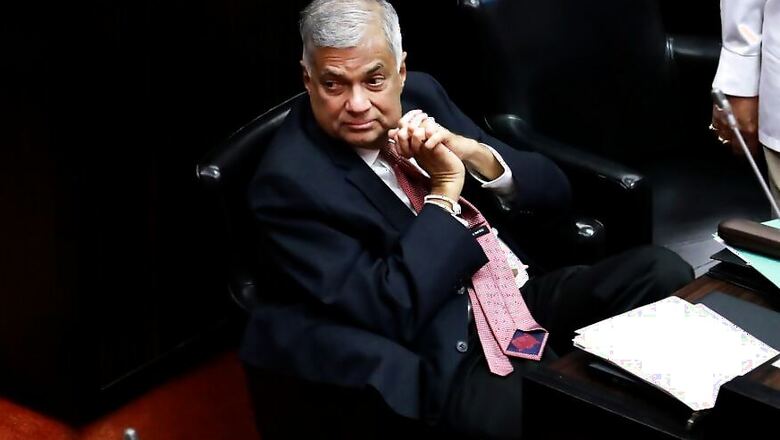
views
Colombo: Sri Lanka's prime minister Ranil Wickremesinghe resigned, bringing his government to an end following his party's presidential election debacle, officials told AFP.
Ranil Wickremesinghe's move clears the way for new President Gotabaya Rajapaksa, elected on Saturday in a landslide, to appoint a replacement of his choice and a new government.
"The prime minister will have a final meeting with his cabinet as well as other leaders of his coalition before addressing the nation to announce his resignation," the official said on condition of anonymity.
Wickremesinghe's party put forward Sajith Premadasa in the presidential election but was soundly beaten by Rajapaksa in a highly divisive election in the island nation of 21.6 million.
He and brother Mahinda Rajapaksa are adored by the Sinhala-Buddhist majority -- but loathed among minority Tamils -- for spearheading the brutal crushing of Tamil Tiger separatists 10 years ago to end Sri Lanka's civil war.
Around 40,000 Tamil civilians were allegedly killed by the military in the closing stages of the conflict when Gotabaya Rajapaksa effectively ran the security forces and his brother was president.
During the three-month election campaign held in the shadow of Islamist extremist attacks in April, Rajapaksa had promised to make his charismatic and popular brother Mahinda his prime minister.
Wickremesinghe came to power in 2015 on a promise to prosecute members of the outgoing Rajapaksa regime who were accused of corruption and even murder, but failed to bring any perpetrators to justice. He ended up facing accusations of cronyism and incompetence and was also implicated in several financial scandals himself.
His government also presided over major security lapses that were blamed for the suicide bombings on three churches and three hotels that killed 269 people on Easter Sunday.
Soon after Wickremesinghe's party lost Saturday's election at least 10 of his senior ministers, including finance minister Mangala Samaraweera, resigned.
The current parliament was elected in August 2015 for a five-year term and cannot be dissolved by Rajapaksa until March, six months before its term ends. However, legislators through a majority resolution could ask for a snap poll.
Rajapaksa's party does not enjoy a majority in the 225-member assembly and must depend on Wickremesinghe's United National Party to form a minority government until the next parliamentary election.



















Comments
0 comment